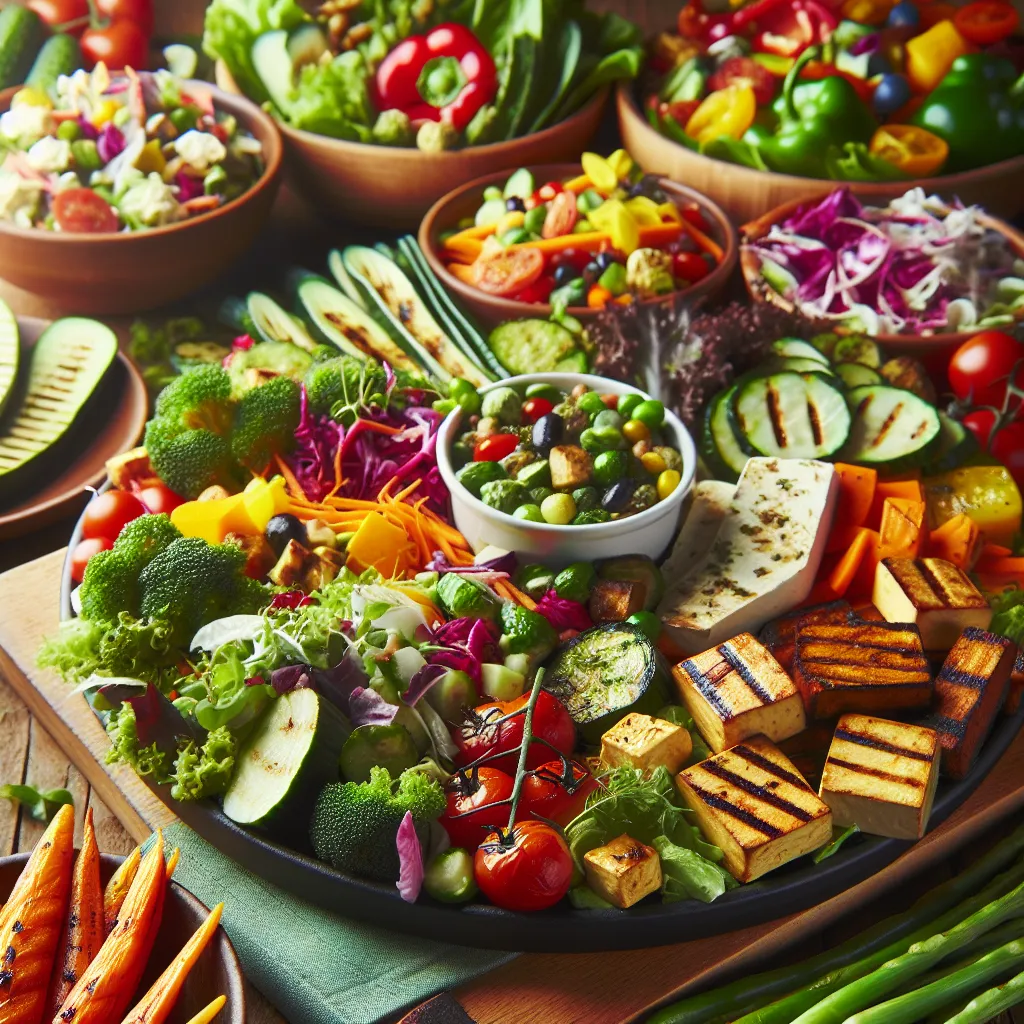Delicious and Nutritious: The Appeal of Vegetarian Cuisine
Exploring the world of vegetarian cuisine opens up a delightful array of flavors, textures, and nutrients that entice food enthusiasts from all walks of life. What makes vegetarian cuisine so appealing is the perfect fusion of deliciousness and nutrition. The diverse range of fruits, vegetables, grains, legumes, nuts, and seeds not only create a spectrum of flavors but also deliver essential vitamins, minerals, and antioxidants necessary for a balanced diet.
One of the key appeals of vegetarian cuisine is the creativity it inspires. With an emphasis on fresh produce and innovative cooking techniques, vegetarian dishes are often vibrant, visually stunning, and bursting with flavors. From hearty salads to savory stews, the versatility of vegetarian ingredients offers endless opportunities for culinary exploration and experimentation. Additionally, the focus on wholesome, unprocessed foods aligns with the growing demand for healthier dining options.
Moreover, the nutritional benefits of vegetarian cuisine cannot be overstated. Plant-based diets are known for their potential to reduce the risk of chronic diseases such as heart disease, diabetes, and certain types of cancer. They are naturally low in saturated fats and cholesterol, and high in fiber, all of which contribute to better overall health. Additionally, the abundance of vitamins, such as C and E, along with minerals like potassium and magnesium, provides a substantial nutritional advantage.
In conclusion, the widespread appeal of vegetarian cuisine lies in its ability to deliver a perfect blend of delectable flavors and essential nutrients. As more people recognize the benefits of embracing a plant-based diet, the culinary world continues to embrace and elevate the art of vegetarian cooking, making it an integral part of global gastronomy.
Healthy and Sustainable: Exploring Plant-Based Eating
Exploring the world of vegetarian cuisine opens up a vast array of delicious and nutritious options for those looking to embrace a healthy and sustainable lifestyle. Plant-based eating is not only a growing trend but also a conscious choice towards promoting personal health and environmental sustainability. Embracing a vegetarian diet rich in fruits, vegetables, whole grains, legumes, nuts, and seeds can have numerous health benefits, including lower risks of heart disease, high blood pressure, and certain types of cancer.
Moreover, plant-based eating offers a sustainable approach to food consumption. The production of plant-based foods generally requires fewer natural resources and produces fewer greenhouse gas emissions compared to animal-based products. By opting for vegetarian cuisine, individuals can contribute to the reduction of their carbon footprint and support sustainable food systems.
Whether it’s indulging in vibrant salads, hearty grain bowls, or innovative meat substitutes, the world of vegetarian cuisine offers a diverse and exciting range of options. From the vibrant flavors of Mediterranean mezze to the exotic spices of Indian curries, there’s something to satisfy every palate within the realm of plant-based eating.
As the awareness of the health and environmental benefits of plant-based eating continues to grow, exploring the world of vegetarian cuisine becomes an enticing and rewarding endeavor for individuals seeking a healthier and more sustainable way of nourishing themselves. By incorporating a variety of plant-based foods into their diet, individuals can savor the diverse and delectable range of flavors while contributing to their own well-being and the well-being of the planet.
Global Flavors: A Culinary Journey Through Vegetarian Dishes
Exploring the world of vegetarian cuisine opens up a vibrant and diverse range of global flavors, offering a culinary journey through an array of vegetarian dishes. From the fragrant spices of Indian cuisine to the savory umami flavors of Japanese plant-based dishes, there is a rich tapestry of tastes to be discovered.
One of the most intriguing aspects of global vegetarian cuisine is the way different cultures incorporate local ingredients and cooking techniques to create unique and flavorful meatless dishes. In India, for example, the use of spices like cumin, coriander, and turmeric elevates vegetarian curries and dals to a whole new level of sensory delight.
Meanwhile, in East Asian cuisine, the umami-rich flavors of soy sauce, miso, and seaweed form the backbone of many vegetarian dishes, adding depth and complexity without the need for meat. The delicate art of sushi making, with its emphasis on fresh vegetables and umami-rich sauces, showcases the skillful balance of flavors in Japanese vegetarian cuisine.
Traveling to the Mediterranean, we encounter the hearty simplicity of dishes like Greek spanakopita, a flavorful blend of spinach, feta cheese, and flaky phyllo pastry. The use of olive oil, garlic, and an abundance of fresh herbs characterizes the vibrant vegetarian fare of this region.
Exploring the world of vegetarian cuisine allows us to appreciate the wealth of global flavors and culinary traditions that celebrate the abundance of plant-based ingredients. Whether it’s the fiery heat of Mexican salsas or the aromatic blend of Middle Eastern spices, vegetarian cuisine offers a passport to a world of taste sensations.
From Farm to Fork: Embracing the Vegetarian Lifestyle
Exploring the world of vegetarian cuisine opens up a delectable array of culinary possibilities, emphasizing the seamless transition from farm to fork. Embracing the vegetarian lifestyle not only celebrates a harmonious relationship with nature but also delivers a plethora of health benefits. From the vibrant fields teeming with fresh produce to the diverse array of plant-based dishes adorning our tables, the journey from farm to fork is a testament to the beauty of vegetarian living.
By immersing ourselves in the world of vegetarian cuisine, we not only partake in a delectable gastronomic adventure but also contribute to sustainable agricultural practices. The farm-to-fork journey emphasizes the importance of locally sourced, seasonal produce, allowing us to savor the bounties of each harvest while minimizing the environmental impact of our dietary choices. With an emphasis on embracing organic farming methods and supporting local farmers, the vegetarian lifestyle fosters a deeper connection to the origins of our food.
Furthermore, transitioning to a vegetarian diet encourages a deeper appreciation for the inherent flavors and nutritional richness of plant-based ingredients. From crisp, earthy greens to robust heirloom tomatoes, each component of a vegetarian dish encapsulates the vibrancy of the farm it originates from, offering a sensorial experience that transcends the mere act of nourishment.
In essence, exploring the world of vegetarian cuisine underscores the journey from farm to fork as a holistic and enriching experience. By embracing the vegetarian lifestyle, individuals not only elevate their culinary exploits but also cultivate a profound reverence for the interconnectedness of nature, nutrition, and sustainability.




